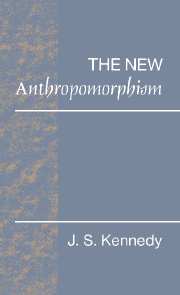Chapter 3
Published online by Cambridge University Press: 29 January 2010
Summary
Instinct
The history of ethology must be almost unique. Its founders were awarded a Nobel Prize, which they richly deserved, and yet the theoretical core of the discipline as they founded it survived only a few decades. Most of the overhauling occurred in the 1950s and took the form not so much of revising that original theoretical core, the theory of instinct, as of simply demolishing it, leaving nothing of comparable generality in its place. By 1968 the theory of instinct put forward by Lorenz (1937, 1950) and Tinbergen (1950, 1951) and commended by Thorpe (1948, 1954), could be alluded to by Bateson, then a seasoned editor of Animal Behaviour, in the following terms:
“Worship of the old gods and the intellectual baggage that went with it still survives quaintly in odd corners. But for the most part proponents of a Grand Theory have either been forced to close their eyes to awkward evidence or modify their ideas to the point of unfalsifiability. Explanations have thus become more limited in scope.
(Bateson 1968)This was not an unfair judgement. It has been echoed by R. Dawkins (1976a) and Barlow (1989) and repeated recently by Bateson & Klopfer (1989). Ridley (1982) even described a book in which Lorenz (1981) defended his original ideas, as “awkwardly antediluvian”.
- Type
- Chapter
- Information
- The New Anthropomorphism , pp. 33 - 59Publisher: Cambridge University PressPrint publication year: 1992



